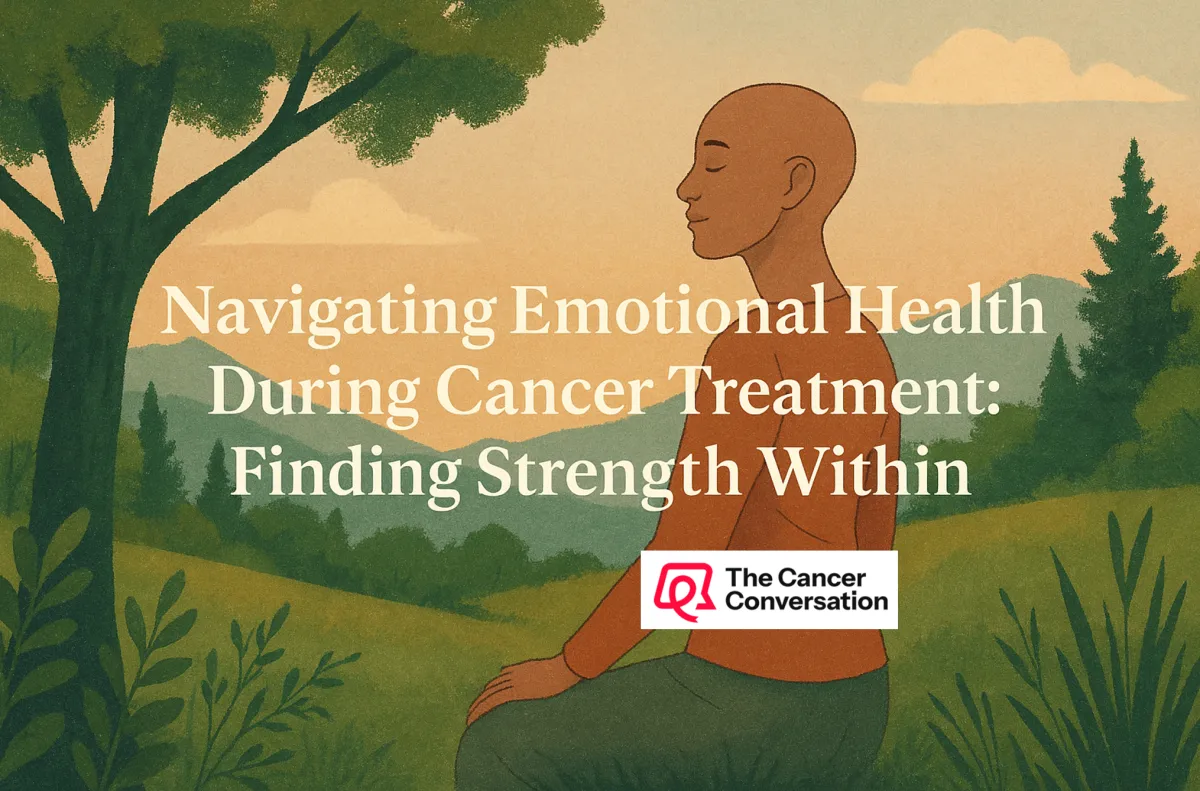
Navigating Emotional Health During Cancer Treatment: Finding Strength Within
Facing a cancer diagnosis can feel like an emotional whirlwind, leaving individuals and their loved ones grappling with a mix of fear, uncertainty, and hope. It's during these times the mind-body connection becomes crucial, offering a pathway to emotional resilience amidst the storm of cancer treatment. Understanding the importance of emotional health during cancer can empower you to navigate this challenging journey with grace. Holistic cancer support, including practices such as NLP and hypnotherapy, can complement traditional treatments, helping to restore balance and strength from within. As we share insights and experiences, let's explore how nurturing your emotional well-being can be a powerful ally in your recovery. 🌟
Learn more about supporting mental health during cancer treatment.## Understanding Emotional Health During Cancer

Facing cancer often challenges not just the body but the mind. Emotional health during cancer is as vital as physical health and plays a pivotal role in recovery. Understanding key concepts such as the mind-body connection and emotional resilience can help individuals and families manage emotional health effectively.
The Mind-Body Connection
The mind-body connection is a powerful interplay between our mental and physical states. When facing cancer, understanding this connection can be transformative.
Emotional stress can impact physical health by weakening the immune system, while positive emotions can bolster it.
Studies suggest that patients who maintain a positive outlook often experience better health outcomes.
Techniques like mindfulness and meditation can enhance this connection, promoting healing.
By focusing on practices that strengthen the mind-body connection, you can support your health journey. For more insights, the National Cancer Institute offers valuable resources.
Importance of Emotional Resilience
Emotional resilience refers to the ability to recover from emotional setbacks. During cancer treatment, building resilience is crucial for maintaining mental health.
Resilient individuals often use positive coping strategies such as seeking support and maintaining a hopeful outlook.
Developing resilience can involve practices like gratitude journaling and setting achievable goals.
Support groups can provide a vital network for sharing experiences and gaining strength from others.
Emotional resilience not only aids in navigating daily challenges but also enhances overall well-being. Mayo Clinic provides guidance on fostering resilience during this journey.
Exploring Holistic Cancer Support

Holistic cancer support encompasses a range of practices designed to complement traditional treatments. Techniques like NLP and hypnotherapy can aid emotional health by addressing psychological aspects of healing.
Benefits of NLP and Hypnotherapy
Neuro-Linguistic Programming (NLP) and hypnotherapy are holistic therapies that can support emotional health during cancer treatment.
NLP involves reprogramming thought patterns to promote positive thinking and behavior.
Hypnotherapy helps reduce stress and anxiety through guided relaxation and focused attention.
Both techniques can improve mental clarity and emotional balance.
These therapies can enhance the healing process by fostering a positive mindset. The American Cancer Society offers further information on these complementary therapies.
Integrating Traditional and Holistic Practices
Combining traditional and holistic practices can provide comprehensive cancer treatment support. Integration can be seamless with the right approach.
Consult healthcare providers to ensure compatibility with existing treatments.
Research evidence-based holistic practices to understand their benefits.
Create a personalized plan that aligns with your needs and preferences.
Integrating both approaches can enhance emotional resilience and offer a balanced pathway to recovery. Penn Medicine discusses these integrative strategies further.
Empowering Emotional Resilience

Empowering emotional resilience involves everyone—patients, caregivers, and families. Building a supportive environment is key to fostering resilience.
Strategies for Caregivers and Family
Caregivers and family members play a crucial role in supporting emotional health during cancer treatment.
Communication is key: Open discussions about fears and hopes can ease emotional burdens.
Encourage self-care: Caregivers must also prioritize their well-being to provide effective support.
Involve family in therapy sessions to strengthen bonds and understanding.
These strategies can help caregivers maintain their own emotional resilience while supporting their loved ones.
Building a Supportive Environment 🌟
Creating a supportive environment enhances the emotional health of cancer patients.
Foster positivity: Surround yourself with uplifting influences.
Cultivate a safe space: Ensure the patient feels emotionally secure at home.
Engage in community activities: Connecting with others can alleviate feelings of isolation.
A supportive environment strengthens the foundation of emotional resilience for both patients and their families. By following these guidelines, you can contribute to a nurturing atmosphere that promotes healing.
Explore our Mind-Body Cancer Therapy program for more strategies on enhancing emotional resilience during treatment. 🌟








